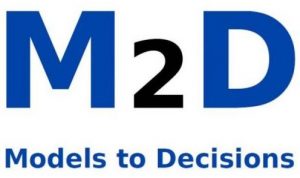Network Aims:
The aims of the networks are to:
- Grow a community which is passionate & capable of working in multidisciplinary environments to consider problems in the area decision making under uncertainty
- Identify ambitious multi-disciplinary challenges which can form an agenda for research in the area
- Cover a wide range of thematic & sector-based research areas
- Develop a mechanism for sustained engagement with user organisations (government, industry, regulators, civil society) to analyse real world systems where multi-disciplinary research could be initiated or applied
- Enable multi-disciplinary collaborations which lead to novel research or approaches which are applied to real world decisions
- Identify a broad range of funding sources to further develop the areas that the networks are in
- Demonstrate the value of multi-disciplinary research in addressing real world issues related to decision making under uncertainty and identify priorities for subsequent research initiatives in this area
- Encourage the two-way transfer of knowledge and expertise both between disciplines as well as between academia and user organizations.
The M2D network will primarily be mathematics-led, with modelling firmly at the centre. However, it will include engineering, finance, healthcare and social science, as well as philosophy, psychology and the humanities. The over-arching aims are
- to develop a broad and fully inclusive community of researchers and practitioners to address substantive problems in model-based decision-making under uncertainty and,
- to develop new methodologies, informed by understanding users’ needs, and promulgate them to decision makers.
The M2D network will run and promote activities and also fund projects based on three central themes: Uncertainty Quantification, From Models to Decisions and Communicating Uncertainty.
Beneficiaries
There are a number of academic beneficiaries of the network:
- Mathematicians and statisticians working on the quantification of uncertainty in complex numerical models.
- Numerical modellers in all areas of science including engineering, healthcare, climate, finance, and social science.
- Social scientists and psychologists working on decision making and how decision makers use evidence.
- Researchers in the humanities looking at how we use narrative and visual representations to represent uncertainty.
- Any academic who needs to make a decision and has information from a numerical model to help him or her make that decision.
The results from the network will help public and private sector decision makers who utilize evidence from numerical modelling in their decision making processes. The list of potential applications is far from exhaustive, some examples include:
- Engineers using numerical models to make design calculations, saving money on expensive experiments and tests.
- Climate policy is set using the results of complex numerical models of both the physical and social world, all of which have significant, often unquantified, uncertainties
- Personalised medicine is increasingly being practiced. By modelling, say, the heart of an individual, a personalized diagnosis and treatment plan can be produced. However it is vital that the clinician making these decisions knows the quality of the model results so they can be balanced with other uncertainties
- In the financial world many decisions use numerical models, from reinsurance of natural hazards to banking regulation and the use of economic forecasting to set government policy.

